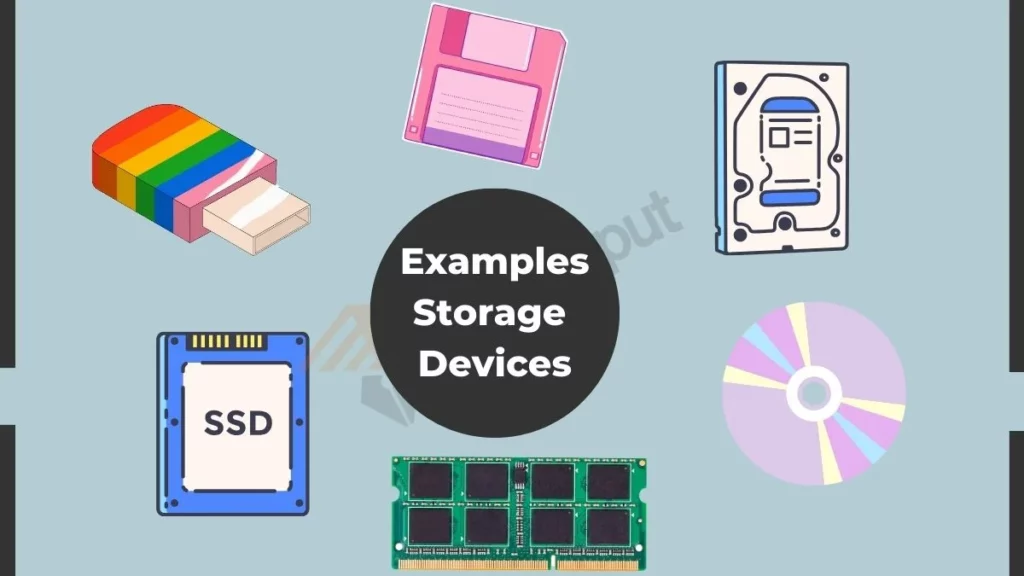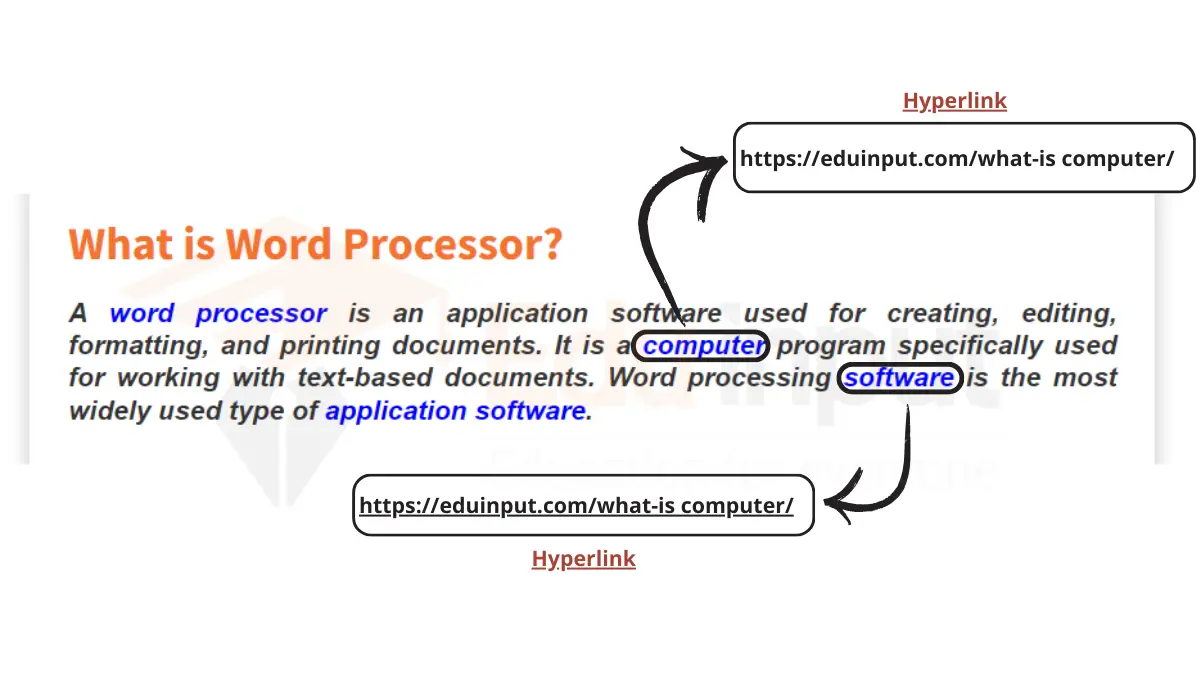15 Examples of Storage Devices
Storage devices are components used to store data in a computer system. Examples of storage devices include HDD, SSD, USB flash drives, Floppy disks, Memory cards, and more.
Examples of Storage Devices
Here are some examples of Storage Devices:

1. Hard Disk Drive (HDD)
A hard disk drive is used to permanently store data in computers. It has high-capacity storage and the data remains even when the power is turned off. HDDs have magnetic disks that spin and magnetic heads that read/write data. HDDs have high capacities, typically ranging from a few hundred GBs to 10s of TBs.
2. Solid State Drive (SSD)
SSDs are faster and more reliable than HDDs. They store data in microchips and contain no moving parts, making them less prone to damage. SSDs use flash memory to store data digitally. SSDs have changed the storage landscape, especially in laptops, tablets, and high-performance computers.
3. USB Flash Drive
USB flash drives are small, rewritable storage devices that connect to computers via USB ports. They are portable and allow easy file transfer between devices. Their storage capacities typically range from 1GB to 256 GB.
4. Floppy Disk
Floppy disks are outdated storage devices. It was a disk of thin flexible (“floppy”) magnetic storage medium, sealed in a rectangular plastic carrier. It allows for saving small amounts of data. They can be easily removed and transferred between systems. Each disk has a storage capacity of 1.44 MB.
5. CD/DVD
CDs and DVDs are optical discs that store digital data. CDs hold up to 700MB while DVDs can store anywhere from 4.7GB to 17GB. They are portable and cheap storage options.
6. Blu-Ray Discs
Blu-ray discs are high-density optical discs with storage capacities of up to 128GB. They utilize blue-violet lasers instead of red lasers used in CDs/DVDs.
7. Magnetic Tapes
Magnetic tapes store data magnetically on reels of plastic film. They are used for backups and archiving as they can hold very large amounts of data. Tapes are also removable and portable. Modern tape cartridge capacities reach up to 360 TB (compressed).
8. Memory Cards
Memory cards are small, reusable flash memory devices used mostly in portable electronics like phones, tablets, cameras, etc. Popular memory cards include SD, microSD, and CompactFlash.
9. Pen Drive
Pen drives, also called flash drives, utilize flash memory to store data. They interface with computers via USB ports and offer storage capacities ranging from 1GB to 2TB.
10. External Hard Drives
External hard drives provide large data capacity storage that can be accessed by connecting to computers externally using USB, Firewire, and eSATA ports. They typically range from 500GB to 10TB capacity.
11. Network Attached Storage (NAS)
A NAS device is used for centralized data storage and backup for computers in a network. They connect directly to a home or office network to provide shared storage accessible from wired and wireless devices on the network
12. Cloud Storage
Cloud storage involves saving data online on remote cloud servers. It provides flexible, scalable, and location-independent storage accessed over the internet.
Popular cloud services like Dropbox, Google Drive, and OneDrive offer storage ranging from a few GBs up to 10 TB or more depending on the provider and subscription plan.
13. Floppy Diskettes
Floppy diskettes are outdated square-shaped disk storage media that can hold 1.44MB of data. Data was stored in concentric tracks on the disk. They need to be inserted into disk drives to access stored files.
14. Data Tapes
Data tapes like the Linear Tape-Open (LTO) are primarily used for data archiving and backup. They provide long-term storage for large volumes of data.
15. Zip Disks
Zip disks are removable disk storage devices with larger capacity than floppies. Zip disk drives are connected via parallel ports or USB. Different versions offer storage like 100MB, 250MB, or 750MB per disk.






Leave a Reply